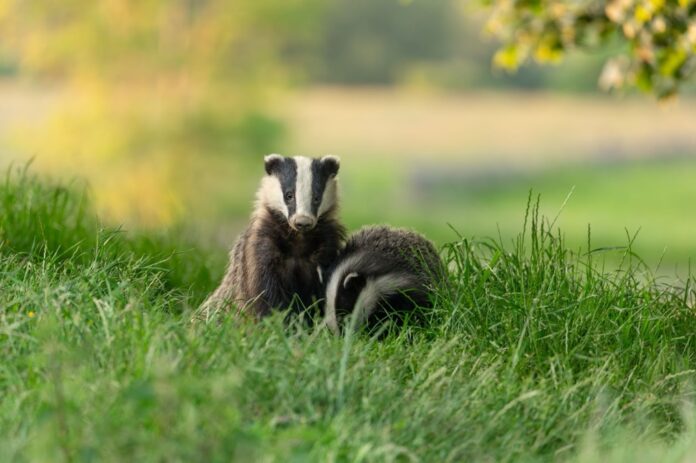Foods you can – and can’t – leave out for UK wildlife this winter
Households have been offered expert advice on the different types of foods they can leave out for wildlife this winter.
Ecologists from Arbtech have also revealed the snacks and scraps you should never give to UK wildlife – including cooked bones from poultry and dairy products.
With winter in full swing, households may be tempted to feed the wildlife visiting their gardens during the colder weather.
As natural food sources become scarcer, offering different foodstuffs in the garden helps ensure that animals like birds, hedgehogs, squirrels, badgers and foxes can maintain their energy levels, stay healthy, and build up fat reserves for the winter.
Whilst providing food for these creatures can be rewarding, it’s crucial to ensure that only safe and nutritious options are provided, as feeding wildlife incorrectly can cause health problems – some of which are potentially fatal.
It’s also important to continue to encourage natural foraging behaviours, so families are urged to avoid making wild animals overly reliant on food provided by them and other humans.
Andrew Ward from Arbtech said: “Supporting wildlife in your garden has a positive impact on biodiversity and offers a great opportunity for families to connect with nature, but it’s important that you’re leaving out foods which suit the animal’s dietary and nutritional needs.
“By providing high-energy, nutrient-rich foods while avoiding harmful or low-nutrient options, you can ensure the health and well-being of the wildlife visiting your garden – especially during the colder months. It’s a simple but meaningful way to support local wildlife and contribute to conservation efforts from home.”
- Birds
If you want to help local birds build up their fat reserves during winter, you can leave out a variety of seeds, nuts and fruits like apples, pears and berries for them. You can also buy dried or live mealworms which are great for insectivorous birds like robins and bluetits.
Alternatively, you should refrain from leaving out bread, salted foods, raw or dried beans, and processed or sugary foods like biscuits, cake, and chocolate. Chocolate in particular contains theobromine, which is toxic to birds.
- Hedgehogs
Although they will be hibernating during winter, hedgehogs do still occasionally wake up during milder weather to eat. Specialist hedgehog food that is formulated with the right nutrients will be available from pet stores or wildlife suppliers, but if you can’t get hold of any, wet cat or dog food is a good alternative. Meat-based, grain-free varieties (chicken, turkey, or beef) are excellent choices, providing hedgehogs with protein and fat, but try to opt for those in jelly rather than gravy.
Hedgehogs also enjoy mealworms, but too many can lead to health issues, so use sparingly. Unseasoned, cooked chicken or turkey also provides a great protein source. Just make sure there’s no added salt, seasoning, or sauces. Occasionally, hedgehogs will also eat small amounts of fruit like chopped apples, pears or berries.
Foods to avoid for these prickly pals include bread, milk, raw meat and eggs, as well as whole nuts and seeds. Whole nuts are choking hazards for hedgehogs, especially as they don’t tend to chew food thoroughly.
Remember that hedgehogs are nocturnal, so put food out at dusk and remove leftovers in the morning to avoid attracting pests.
- Foxes
Foxes are omnivores but they thrive on protein, so you can offer meat such as chicken, turkey, or beef. Avoid seasoning or spices, and cut the meat into manageable pieces. Liver, kidneys, or other organ meats can be a good occasional treat. Wet or dry dog food is a convenient and well-balanced food source for foxes, providing them with essential nutrients. They also tend to enjoy raw or cooked eggs.
On the other hand, any processed or junk food items like chocolate, crisps, and salty snacks are big no-nos for foxes. Keep in mind that foxes are lactose intolerant too, so dairy products such as milk, cheese, and cream can cause digestive problems.
Cooked bones from poultry or other meats can splinter and cause serious injury to a fox’s throat or digestive system, so it’s safer to avoid bones altogether.
If you’re regularly feeding foxes, avoid making them dependent on human food. Offer food occasionally and in small amounts to encourage natural foraging behaviour
- Squirrels
Squirrels are active foragers, and while they can eat a wide range of foods, some are much better for their overall health than others.
Squirrels love nuts, but always give them unsalted and unroasted varieties to avoid excess sodium and harmful additives. Hazelnuts, walnuts, almonds and pecans are all healthy choices. Sunflower seeds are also a great option as they’re high in fats and energy, but offer them sparingly as too many can cause an imbalance in their diet.
Squirrels enjoy whole grains like oats, barley, and wheat as part of their diet, especially during the colder months when they need extra energy. Fresh vegetables like carrots, broccoli, and green beans are also a great source of vitamins and nutrients.
Raw corn kernels should be avoided at all costs, as large amounts of it can ferment in their stomachs, leading to digestive problems. The skin and pit of avocados contain persin, a fungicidal toxin that can be harmful to squirrels if ingested, so take them off the menu too.
- Badgers
Badgers are nocturnal foragers with an omnivorous diet, but some foods are much better suited to their needs than others.
Badgers enjoy a variety of high-protein foods, including wet cat or dog food and unsalted peanuts. These are excellent choices for supporting their energy needs, particularly in autumn and winter when they’re preparing for hibernation. Fruits like apples, pears, and berries are also great, providing natural sugars and hydration. You can also offer plain, cooked meat (such as chicken) in small amounts.
However, there are certain foods to avoid. Milk and dairy products should be excluded as badgers, like many mammals, are lactose intolerant. Raw or salted nuts should also be avoided, as high salt content can cause health issues. Processed foods, including chocolate, sweets, or any junk food, can be harmful, as they contain additives and sugars that badgers cannot digest. Similarly, avoid leaving out bread, which provides little nutritional value and can fill them up without meeting their dietary needs.
Help keep news FREE for our readers
Supporting your local community newspaper/online news outlet is crucial now more than ever. If you believe in independent journalism, then consider making a valuable contribution by making a one-time or monthly donation. We operate in rural areas where providing unbiased news can be challenging. Read More About Supporting The West Wales Chronicle
























